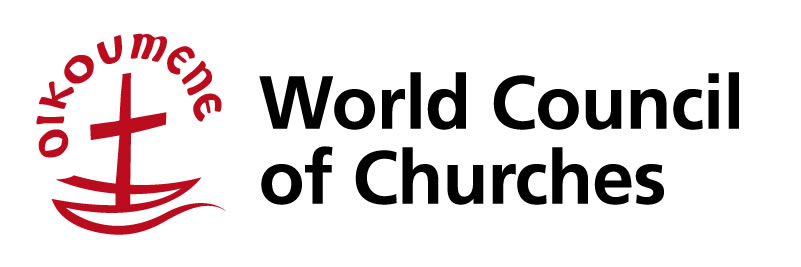WCC News: Broken glass of hope grown out of rubble
 By Claus Grue*
By Claus Grue*
Originally, they were made of pieces of broken glass from the rubble an Israeli tank left behind it when it slammed into the gift shop at the International Center of Bethlehem (ICB) in 2002. Today the glass angels of peace are made of used bottles and have emerged into a small business enterprise employing around 50 people in the Bethlehem area. Since the tank-incident, thousands of angels have been produced and sold worldwide.
Inger Jonasson, a Swedish missionary and art teacher, who worked at the Art and Culture Center at the ICB 2004 – 2012, explains the theological reasoning behind the angel project:
“Broken glass can be seen as a sign of the brokenness in our world, which is also a reason why God became a human being. Through incarnation, God brought the divine and the human together. He embraced what seemed worthless and hopeless and transformed it to something beautiful and complete. This incarnation, which took place in Bethlehem more than 2000 years ago, is what gives us strength to seek people with broken lives and lost hope”.
 A long-time advocate of peace and reconciliation in Israel and Palestine, Jonasson has been involved in a number of cultural programmes over the years and she continues to work as a teacher one month each year at the Dar al Kalima University College of Arts and Culture (DAK) in Bethlehem.
A long-time advocate of peace and reconciliation in Israel and Palestine, Jonasson has been involved in a number of cultural programmes over the years and she continues to work as a teacher one month each year at the Dar al Kalima University College of Arts and Culture (DAK) in Bethlehem.
“The Angels of Peace are messengers of justice, peace and dignity. And they have become an important lifeline for many Palestinian families in an area where 70 percent of the adult population used to be unemployed”, she explains.
She is particularly fond of art projects which transform sad things into something hopeful. The angels of broken glass allude to suffering and have become a symbol of sympathy with the Palestinian people.
“It is an idea born out of rubble which has grown into a powerful manifestation of peace”, Jonasson says.
Many of the angel makers have been art students in classes led by her and she continues to inspire young artists. She chairs Friends of DAK in Sweden which gives scholarships to art students at the Dar al Kalima College. She also arranged tours for Swedish painters to Galilee, Bethlehem and Jerusalem for several years where the Swedish painters painted together with her Palestinian students and gave joint exhibitions at DAK.
Her own engagement is largely inspired by Rev. Dr Mitri Raheb, a Lutheran pastor in Bethlehem and founder of the College of Arts and Culture.
“He has been a driving force for art and culture and launched numerous programmes. Art and culture are crucial elements in building a democracy, especially in times of hopelessness”, Jonasson concludes.
*Claus Grue is communication consultant for the World Council of Churches
